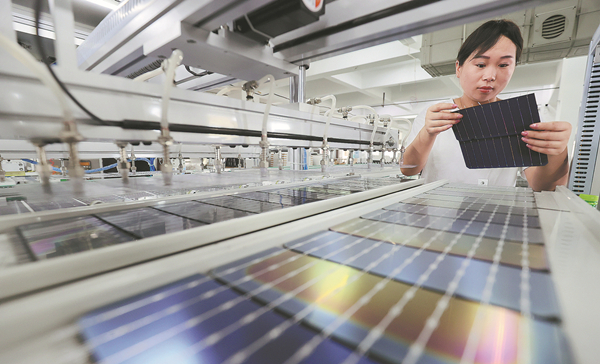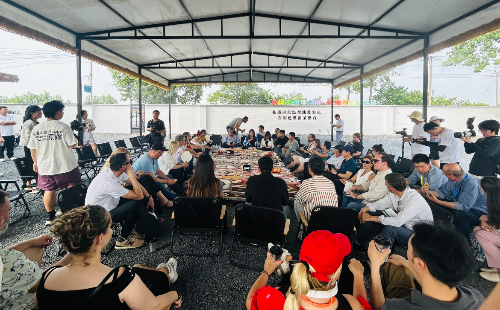Gov't authorities set new policy course to navigate 2024 economy

An employee works on the solar cell production line of a company in Huzhou, Zhejiang province. XIE SHANGGUO/FOR CHINA DAILY
BEIJING - Following China's tone-setting Central Economic Work Conference earlier this month, multiple government authorities have convened meetings, making specific arrangements to anchor the growth momentum of the Chinese economy in 2024.
Boosting sci-tech innovation and expanding domestic demand are among the key missions listed by those departments, revealing the country's direction in its policymaking.
SCI-TECH INNOVATION
The Central Economic Work Conference has put promoting technological innovation to support the development of a modern industrial system at the top of the economic agenda for the next year.
Under the guidance of the conference, a recent meeting on national industrial and information-technology work specified major goals, including improving the sci-tech innovation capability of industries, speeding up the transformation and upgrading of traditional industries, and cementing the leading position of advantageous industries.
Fiscal and financial departments have pledged to prop up the country's sci-tech innovation drive accordingly.
A national fiscal work conference underscored the need to ensure the capital demand of major sci-tech projects and deepen reforms on the allocation and usage of fiscal sci-tech funds, while the National Financial Regulatory Administration vowed to facilitate the development of new productive forces and the building of a modern industrial system.
According to Liang Jing, a research fellow at the Bank of China Research Institute, China is at a pivotal stage of transitioning from traditional factors to technology, data and other new productive factors, which entails the improvement of total-factor productivity through strengthening independence in research and development ability.
"The rapid formation of new productive forces, prompted by sci-tech innovation, will become a vital driving force in China's economic growth and high-quality industrial development," Liang said.
EXPANDING DOMESTIC DEMAND
The national fiscal work conference also focused on implementing another key decision of the Central Economic Work Conference, namely expanding domestic demand while tapping consumption potential and expanding effective investment.
In this regard, the fiscal conference called for efforts including advancing the national unified market, leveraging the additional government bonds effectively, and consolidating the fundamentals of foreign trade and foreign investment.
In a similar vein, another meeting on national development and reform work also emphasized the effective usage of the additional 1-trillion-yuan (about $140.84 billion) of government bonds, government investment within the central budget plan and local government special bonds.
The Ministry of Commerce, on the other hand, concentrated on pushing consumption from post-pandemic recovery mode to broader expansion, promoting the replacement of old consumer goods with new ones, and easing the market access in service industries such as telecommunications and healthcare, among other moves.
"China is characterized by a high savings ratio, but the high savings will transform into consumption and investment once the social expectations improve," said Han Wenxiu, executive deputy director of the Office of the Central Committee for Financial and Economic Affairs.
For the above reason, Han is upbeat about the country's future consumption and investment prospects. "There is huge potential investment demand for new infrastructure and coordinated regional development, among other fields," he said.





 play
play